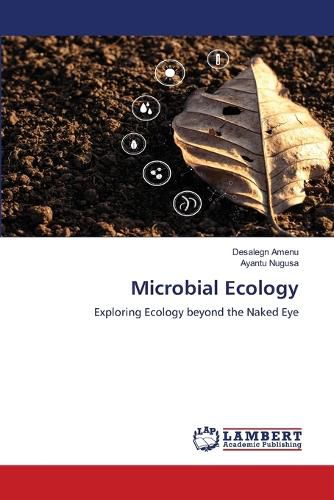Readings Newsletter
Become a Readings Member to make your shopping experience even easier.
Sign in or sign up for free!
You’re not far away from qualifying for FREE standard shipping within Australia
You’ve qualified for FREE standard shipping within Australia
The cart is loading…






This title is printed to order. This book may have been self-published. If so, we cannot guarantee the quality of the content. In the main most books will have gone through the editing process however some may not. We therefore suggest that you be aware of this before ordering this book. If in doubt check either the author or publisher’s details as we are unable to accept any returns unless they are faulty. Please contact us if you have any questions.
Microbial ecology explores how microorganisms interact with each other and their environments. It focuses on microbial communities in diverse habitats, from soil and water to the human body and extreme environments. Key areas include nutrient cycling, symbiotic relationships, and their roles in biogeochemical cycles. Understanding microbial ecology helps in managing ecosystems, bioremediation, and predicting responses to environmental changes like climate change and pollution.
$9.00 standard shipping within Australia
FREE standard shipping within Australia for orders over $100.00
Express & International shipping calculated at checkout
This title is printed to order. This book may have been self-published. If so, we cannot guarantee the quality of the content. In the main most books will have gone through the editing process however some may not. We therefore suggest that you be aware of this before ordering this book. If in doubt check either the author or publisher’s details as we are unable to accept any returns unless they are faulty. Please contact us if you have any questions.
Microbial ecology explores how microorganisms interact with each other and their environments. It focuses on microbial communities in diverse habitats, from soil and water to the human body and extreme environments. Key areas include nutrient cycling, symbiotic relationships, and their roles in biogeochemical cycles. Understanding microbial ecology helps in managing ecosystems, bioremediation, and predicting responses to environmental changes like climate change and pollution.